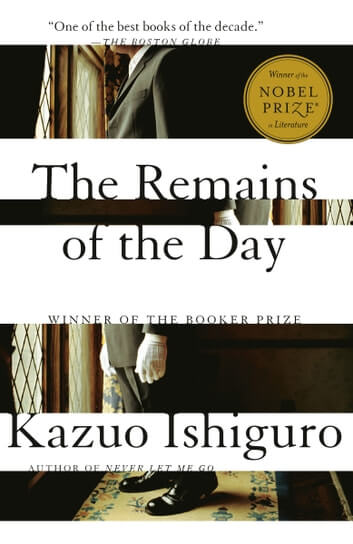Step into the shoes of a devoted butler in 20th-century England with Kazuo Ishiguro’s The Remains of the Day. This novel offers a captivating glimpse into the life of Stevens, whose unwavering sense of duty and dignity shapes his every choice.

Title: The Remains of the Day
Author: Kazuo Ishiguro
Published: May 1, 1989
Genre: 1989, 20th Century, Post-war, Fiction, Historical Fiction, British Literature, England, United Kingdom, English,
Rating: 🌟🌟🌟🌟
Summary
We are following Stevens, a butler at Darlington Hall, in this book. In the summer of 1956, he decides to embark on a six-day trip. During his journey, Stevens delves into his past and England’s history, reflecting on fascism, the world wars, and an unfulfilled romance with his housekeeper.
Review
I love the writing in this book. The character is stoic and reserved, and this is definitely reflected in the tone of the book. This also defines the identity of Stevens, the English butler.
In this book, we follow Stevens on a long trip to visit an old friend who worked for the lord he served for decades. We see Stevens recalling old memories, and there are moments when he suddenly grasps and realizes what has happened, what transpired, and what he thinks about them so it feels like you’re immersed in Stevens’ stream of consciousness.
The book has a touch of humor. Sometimes it’s funny, which I found endearing, but other times, it’s a bit frustrating. Stevens is somewhat clueless about things outside of being a butler, so he can be frustrating when he misses hints about what could have been a very nice love affair.
I often feel melancholic seeing the passage of time in the narrative, especially as Stevens reflects on his past, his actions, and his future. This sense of longing and melancholy is akin to what I felt reading Osamu Dazai’s The Setting Sun. Both books evoke a profound sense of loneliness, reflecting on how the passage of time stirs a yearning for the past, although these books have a very different contexts.
The book also addresses fascism, as noted in the summary. Stevens faces a conflict as he maintains unwavering loyalty to a lord who supports fascist and anti-Semitic views. This exploration of historical events adds depth and sensitivity to the narrative, highlighting the dilemmas of that era. It’s a crucial discussion, resonating even today, and I appreciate how the book incorporates this complexity.
I also enjoyed this book more because, when I was younger, I watched an anime called Black Butler, where a demon becomes a butler to a young lord. So, the butler-lord dynamic was already familiar to me, which made it easier for me grasp the dynamic of Steven to the lord of Darlington Hall.
Final Thoughts
I found this book immersive and reflective. The remainder of our day can be like watching a sunset—seeing your life flash before your eyes and standing there in a quiet, reflective moment. It’s not about regret or reveling but about appreciating what has become of your life and what you’ve accomplished. The book exudes a calmness because Stevens shows a quiet acceptance of what life has become, even with the sense of missed opportunities.
I’d recommend this book to anyone who enjoys literature with subtle plots, fans of historical fiction, or those who like Osamu Dazai but want a tamer version of his themes.
Leave a Reply